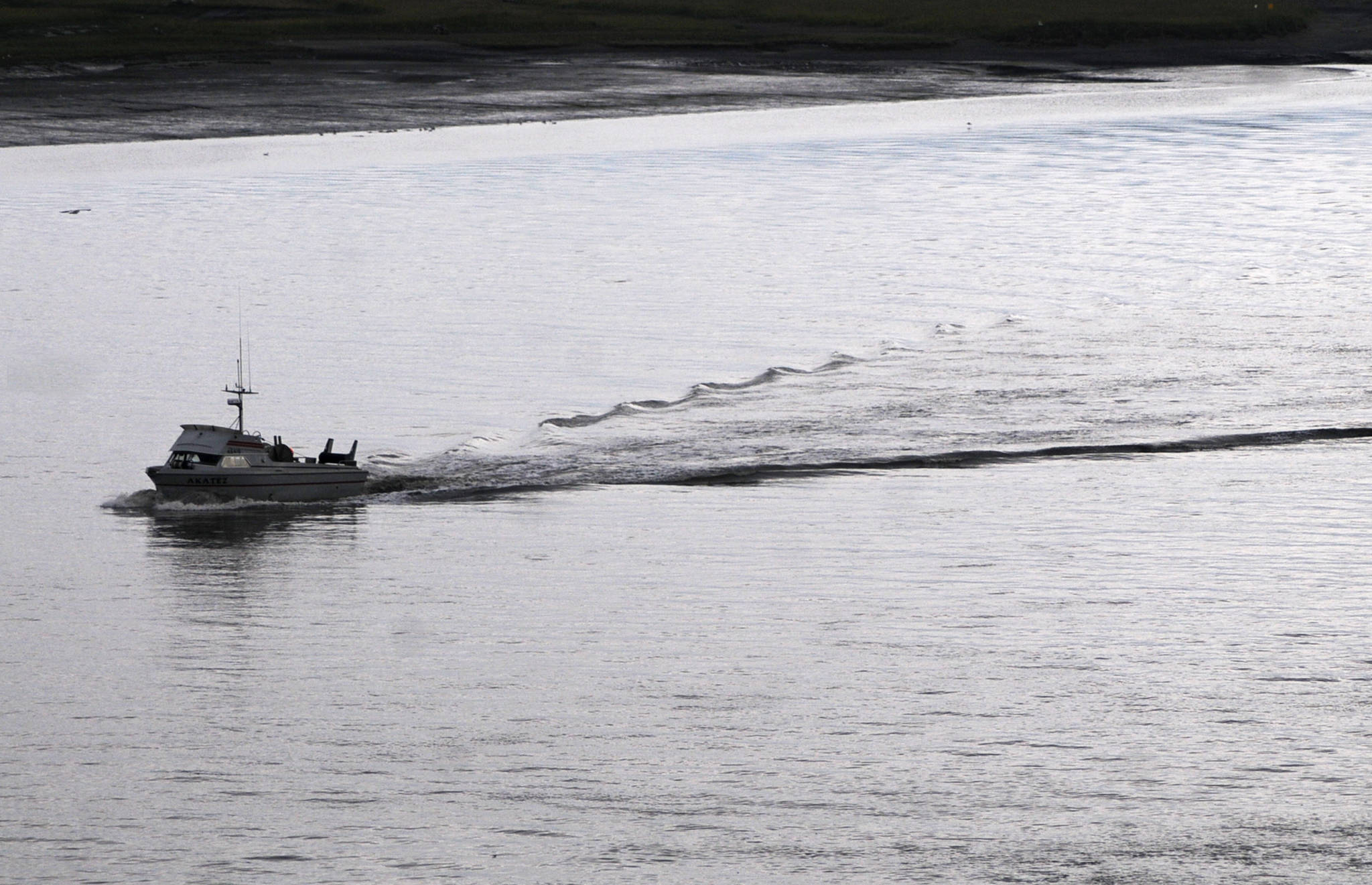The lawsuit over whether the federal government or the state should manage Cook Inlet’s salmon fisheries won’t get its day in the U.S. Supreme Court after all.
Supreme Court justices on Monday denied the state of Alaska’s petition to hear a case in which the Kenai Peninsula-based fishing trade group the United Cook Inlet Drift Association challenged the North Pacific Fishery Management Council’s decision to confer management of the salmon fishery to the state.
Because most of the fishery takes place more than 3 miles from shore, it is within federal jurisdiction and is subject to management and oversight by a federal Fishery Management Plan. In 2012, the North Pacific Fishery Management Council passed an amendment removing fisheries in Cook Inlet, Prince William Sound and the Alaska Peninsula and placing them entirely under state management. UCIDA sued over the decision in 2013, saying the state’s management authority doesn’t comply with the Magnuson-Stevens Fisher Conservation and Management Act.
Though the U.S. District Court for Alaska initially ruled in the state’s favor, a panel of three federal judges on the Ninth Circuit Court in Anchorage reversed the district court’s decision and ruled that the fishery did require a fishery management plan. Saying the state’s management was adequate for the fishery, the state petitioned the Supreme Court to review the Ninth Circuit Court’s decision.
UCIDA president Dave Martin said he wasn’t surprised by the Supreme Court’s decision. The organization’s line has been the same all along, he said — state management has not met the Magnuson-Stevens Act standard for sustainability and optimum yield, with state management plans leaving salmon unharvested and exceeding escapement goals on Cook Inlet freshwater systems.
He cited the example of the 2017 season, when commercial fishermen were restricted from multiple regular fishing periods to boost sockeye salmon escapement. At the end of the season, Alaska Department of Fish and Game managers had either exceeded or come very close to the top ends of their escapement goals, once harvest above the inriver sonar counters was calculated. UCIDA has been claiming for years that the escapement goals are set too high, putting too many fish into the river system to allow for sustainable spawning and maximum yield for fisheries.
Martin said the main goal for wanting an FMP is to ensure that the fishery is managed under proper scientific standards. He said UCIDA also wants to see habitat and invasive species issues dealt with, specifically invasive northern pike in the Matanuska-Susitna Valley, which prey on juvenile salmonids.
“(The Supreme Court decision) just confirmed what we’ve said all along — that we need an FMP,” he said. “To say that they’ve been managing under Magnuson guidelines doesn’t hold true.”
Division of Commercial Fisheries Deputy Director Forrest Bowers said the department is disappointed that the Supreme Court will not take up the case, but the department is working with the North Pacific Fishery Management Council — of which Fish and Game Commissioner Sam Cotten is a member — on what the final fishery management plan will look like.
“We thought we had strong rationale for the Supreme Court to take a look at the legal issues surrounding the Ninth Circuit Court’s decision,” he said.
The Alaska Department of Law had not returned a request for comment by press time Monday.
The North Pacific Fishery Management Council, one of eight regional councils created by the Magnuson-Stevens Act to oversee fisheries in federal waters off Alaska, first took up an amendment to the fishery management plan dealing with Cook Inlet, Prince William Sound and the Alaska Peninsula in April and will do so again this week. An expanded discussion paper, scheduled for council consideration Oct. 7, details more options for amending the plan to include the fisheries and meet the Magnuson-Stevens Act standards.
State salmon fishery management differs from typical federal fishery management on a number of counts. Federally managed fisheries typically include annual catch limits, which set a numerical limit on the number of pounds of fish commercial fishermen are able to harvest in a given year. Because of the high annual variability of salmon returns, state-managed salmon fisheries operate with escapement goals being the base number and commercial catch varies based on the amount beyond the escapement goal, known as harvestable surplus.
Federal and state managers, stakeholders, members of the state Board of Fisheries and members of the North Pacific Fishery Management Council will have to sort out how to either combine state and federal management or transition the fisheries to federal management.
“If the Council decides to delegate specific management measures to the State in order to use existing State salmon management to the extend possible, the Council would need to identify those management functions that would be delegated and how the delegation process would operate,” the discussion paper states.
The North Pacific Fishery Management Council will host an outreach meeting on the salmon fishery management plan for the public in Anchorage on Thursday at 5:30 p.m. The meeting will be streamed online as well.
Reach Elizabeth Earl at elizabeth.earl@peninsulaclarion.com.

